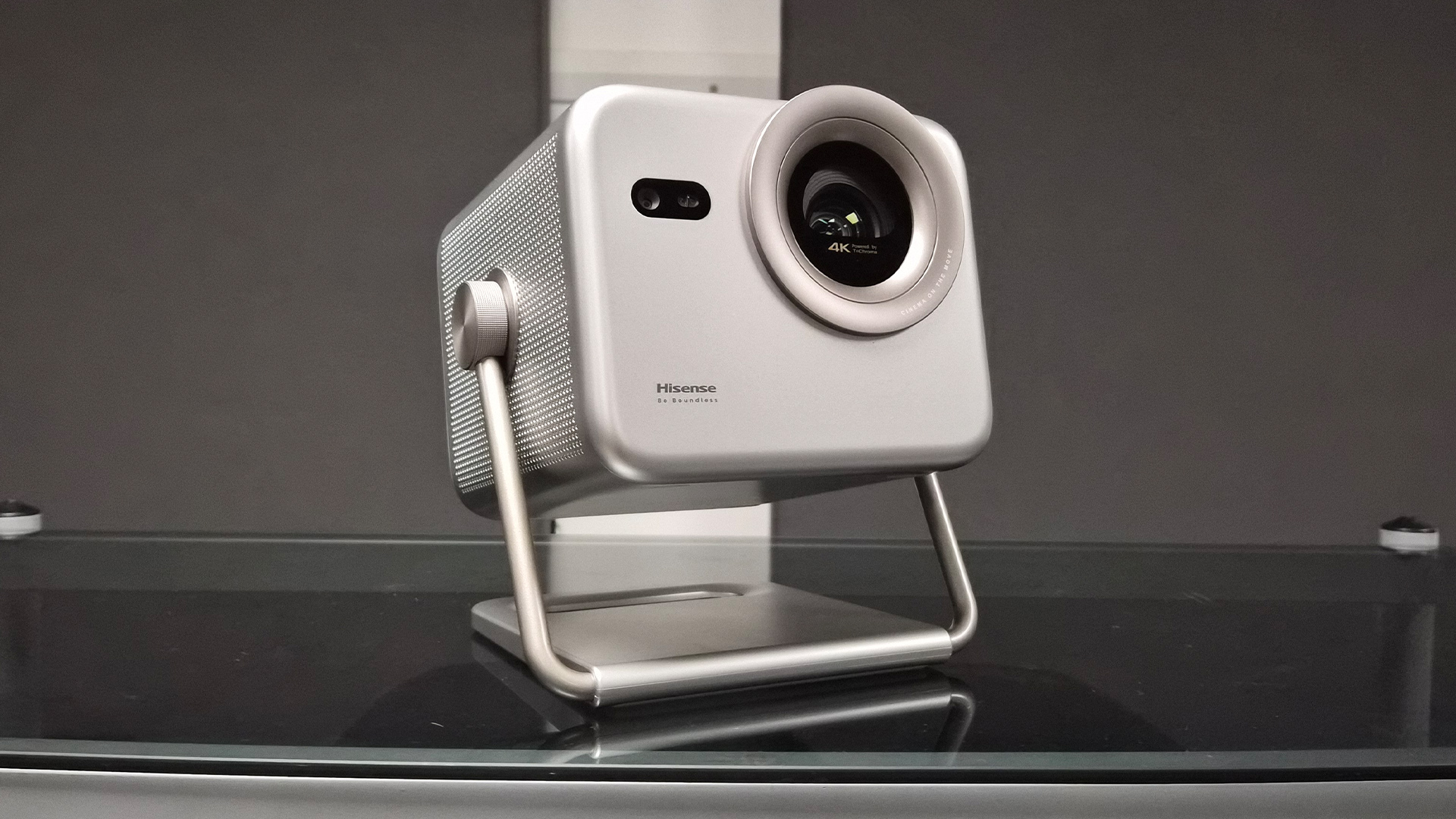What is aptX HD Bluetooth? What devices and headphones support it?
The promise: higher-quality wireless streaming over Bluetooth
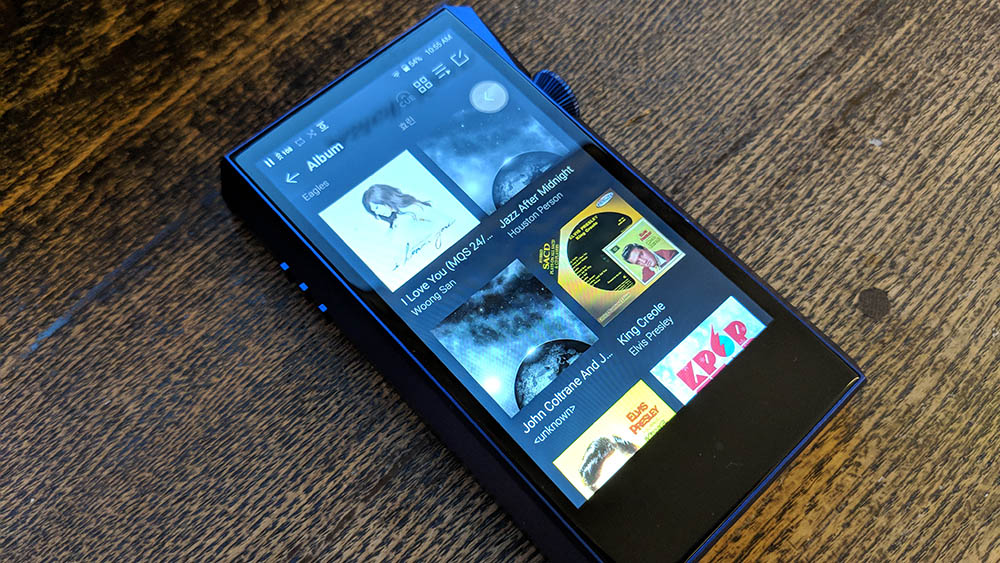
If there is one thing we have learned over the years it’s that plenty of people will happily sacrifice audio quality for convenience – the popularity of music streaming services and wireless headphones are proof of that. Although seldom a match for a well-recorded LP or a refined pair of wired headphones, they sure are handy if you want on-the-go listening without those troublesome wires.
Recently, however, there has been a conscious push for quality in the wireless space. The vinyl resurgence has demonstrated as much – LPs certainly aren't lauded for their convenience – and so has the rise of high-resolution audio in streaming. So is there a way to enjoy ease of use without sacrificing performance?
The folks at telecommunications giant Qualcomm certainly think so. In January 2016, the tech company launched aptX HD, a Bluetooth codec capable of wirelessly transmitting 24-bit hi-res audio between aptX HD-supporting kit – and the closest-in-quality rival to Sony's high-quality LDAC codec. In a nutshell, Bluetooth devices such as portable speakers, smartphones and wireless headphones can now sound even better because of it.
The 'aptX' family of codecs has also been integral to this shift towards potentially higher wireless quality. aptX Adaptive, aptX Lossless and aptX HD have all become hugely prevalent across the more premium tranches of consumer electronics hardware – the Bose QuietComfort Ultra Earbuds, for instance, offer aptX Adaptive support.
While that might be a lot of codecs to get your head around, fear not. We're here to explain what aptX HD is, what's so good about it, how it relates to other codecs, how you can hear it and the devices with which it's compatible. Let's go.
Firstly, what is aptX Bluetooth?
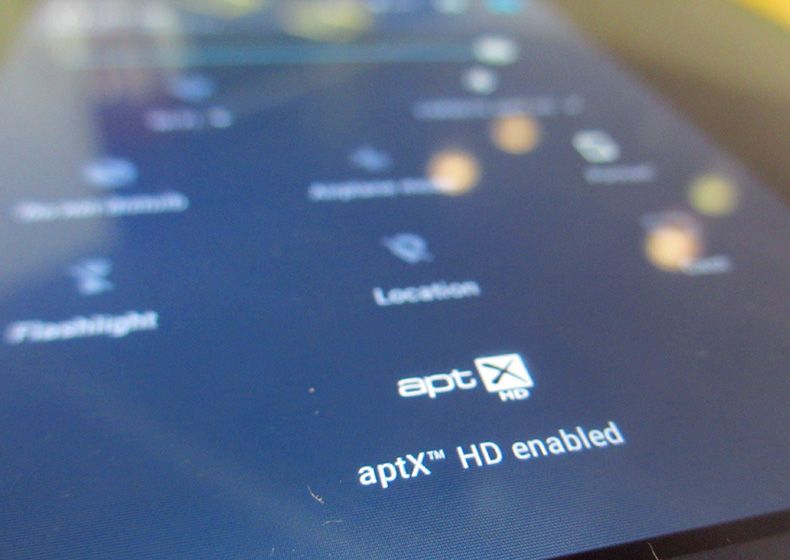
To understand what aptX HD is, we need to discuss what ‘classic’ aptX is. aptX is an audio-coding algorithm, created in the late 1980s, popular with film studios and radio broadcasters. Steven Spielberg was an early adopter, collaborating to use aptX to record audio for 5.1 digital playback for films including Jurassic Park and Schindler’s List in 1993 and Saving Private Ryan in 1997.
These days, Qualcomm's aptX is synonymous with Bluetooth, which you will find on plenty of computers, smartphones, AV receivers, and lots of other consumer electronics products.
The latest hi-fi, home cinema and tech news, reviews, buying advice and deals, direct to your inbox.
What, then, is the big deal about aptX? Its party trick is the ability to transmit music, full bandwidth, at a ‘CD-like’ 16-bit/44.1kHz. Note that it is ‘CD-like’ and not actual ‘CD-quality’ because aptX uses compression (which helps to reduce audio-coding delays and minimise latency issues) and, like almost every other Bluetooth codec out there, isn't actually lossless.
You can read all about how Bluetooth codecs work in our dedicated Bluetooth codecs explainer. For the simplified version, all you need to know is that the higher a codec's bitrate, the more 'bandwidth' it has, meaning the more efficiently it can carry higher-quality audio without losing information. So as aptX can transmit more bandwidth than 'standard' Bluetooth codecs (SBC and AAC), it is designed to sound better than its rivals. In terms of the nitty-gritty numbers, aptX offers a compression ratio of 4:1 and a data rate of 352kbps.
What is aptX HD?
Now for aptX HD, which is essentially an updated, beefed-up aptX with the ability to transfer music in a way that permits better sound quality.
Released in reaction to the increasing popularity of hi-res audio, aptX HD supports audio up to 24-bit/48kHz. Compression remains at a ratio of 4:1, but the bitrate is higher than that of aptX at 576kbps. It can therefore carry higher-quality audio than aptX without losing as much information, though compression still means you are not getting lossless audio. aptX HD supports 24-bit music files, but cannot transmit it with all of the detail intact.
That said, it is still capable of transmitting much more of an audio file than aptX and, of course, standard SBC and AAC.
Plenty of modern wireless speakers, Bluetooth headphones and hi-fi sources support aptX HD, although newer releases tend to opt for the newer, step-up aptX Adaptive codec (more on that below), which fortunately is backwards compatible with aptX HD.
What do you need in order to hear aptX HD?
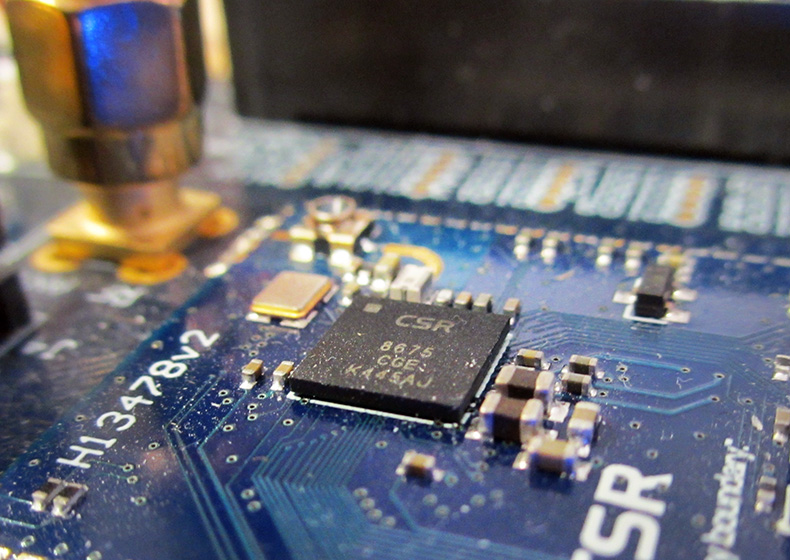
There are certain requirements for using aptX HD. First, you need the right hardware. Specifically, we're talking about devices that contain one of Qualcomm's compatible Bluetooth audio SOCs (system on chips).
Not only can they handle end-to-end 24-bit audio, but they also provide greater digital signal processing than their predecessors. Qualcomm promises a lower signal-to-noise ratio through encoding and decoding, as well as less distortion too, particularly in the 10-20kHz range.
The requirement for a specific chipset means you will get aptX HD only if you have the right devices in the first place: there is no option for a software upgrade later, nor is there any scope for any sort of audio ‘upscaling’.
Again, you don’t need to worry about backward/future compatibility, as aptX HD devices are compatible with ‘classic’ aptX headphones and speakers.
Which products support aptX HD?
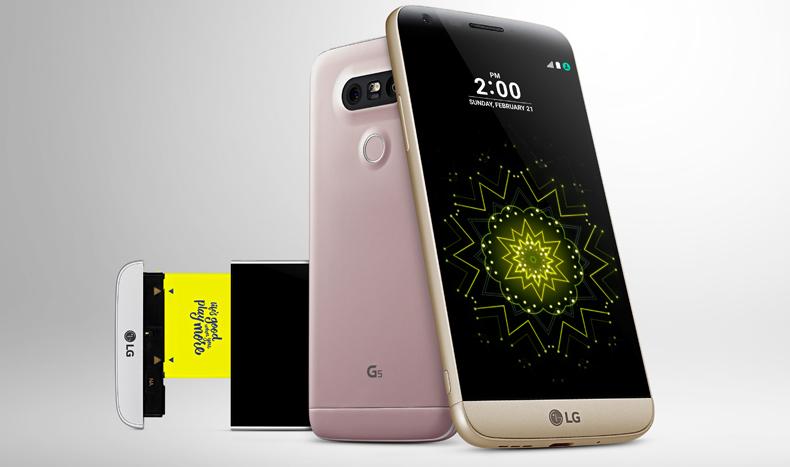
Android smartphones and tablets were some of the first products to implement aptX HD, with the LG G5 being the very first smartphone to adopt it in 2016. Other LG phones quickly followed – and support is now fairly common across various phones from Sony, OnePlus and Google. Notable exceptions include Apple's iPhones – they don't support the aptX codec at all.
aptX HD isn't just in smartphones, anymore. In fact, it's everywhere, from headphones and wireless systems to music streamers and even a Cambridge Audio turntable!
When it comes to portable music players, Astell & Kern is the most prominent supporter of aptX HD alongside Sony's Walkman. For example, the Award-winning Astell & Kern A&norma SR25 MKII, its newer successor, the A&norma SR35, and A&futura SE200 players are compatible with the codec, as is the Sony Walkman NW-A306.
Adoption on the hi-fi side has been growing too. Supporters include (but aren't limited to) Naim's Uniti Star, Atom and Nova streaming music systems; Cambridge Audio's Edge A and Edge NQ amplifiers and Evo 75 and Evo 150 streaming systems; the Dali Callisto and Oberon all-in-one speaker systems; Bowers and Wilkins' Formation Duo and other Formation products. The Ruark R410 all-in-one system comes with aptX HD built-in, as does the five-star Focal Diva Utopia speaker system.
Want to add aptX HD to your existing set-up? Check out the iFi Zen Blue or cheaper Zen Air Bluetooth receivers, which can easily add offline streaming to your system.
We could go on, but we will leave you to scour the specification sheets of the product(s) you are interested in (or browse the full list of 300+ products that support aptX HD here). The point is, aptX HD is something to look out for.
aptX HD vs LDAC
So how does aptX HD stack up against its close codec rival, LDAC? Sony's LDAC codec is technically the most efficient codec with a higher data rate, letting you stream high-resolution audio up to 32-bit/96kHz over Bluetooth at up to 990kbps compared with aptX HD's 24-bit/48kHz support at 576kbps.
For context, the newer aptX Adaptive supports up to 24-bit/96kHz and scales dynamically between 279kbps and 420kbps, while the latest aptX Lossless (part of Qualcomm's Snapdragon Sound package) promises lossless CD-quality (16-bit/44.1kHz) audio over Bluetooth at a rate of "beyond 1Mbit/s". The latter is, in terms of numbers, better than LDAC.
As is the case with LDAC, you still need the right hardware with the relevant chip to take advantage of the codecs, and the fact that hardware rarely tends to support both LDAC and aptX codecs makes it tricky to compare the two.
It's worth noting that our favourite pairs of wireless noise-cancelling headphones, the Sony WH-1000XM5 over-ears and WF-1000XM5 earbuds, support LDAC but not aptX HD.
What about aptX Adaptive and aptX Lossless?
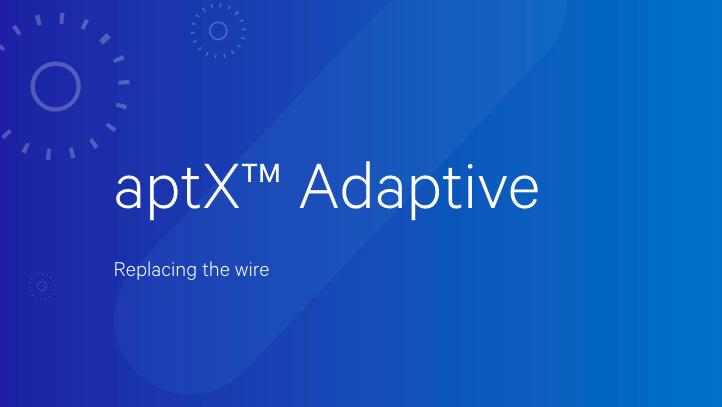
While perhaps still the most commonly supported aptX codec in hardware right now, aptX HD isn't actually the pinnacle of Qualcomm's Bluetooth technologies today. In 2018, Qualcomm unleashed a newer generation of Bluetooth codecs called aptX Adaptive, which is the one you'll now often see supported by new audio product releases.
aptX Adaptive is pretty much replacing aptX HD and essentially combines the current aptX HD with aptX Low Latency. Adaptive is a codec that boasts audio and video syncing with less than 40 milliseconds of latency when you're watching a video or playing a game on your connected device.
Backwards-compatible with aptX and aptX HD, aptX Adaptive takes into account the external RF environment around your aptX Adaptive device, so you shouldn't experience any drop-outs when you are taking your phone out of your pocket or bag. It will automatically optimise audio depending on whether you are making calls or listening to music.
As the name suggests, aptX Adaptive is a codec designed to be capable of adapting. Rather than having a locked bitrate like aptX Classic, Low Latency, and aptX HD, the newest version of the codec can dynamically scale the bitrate to adapt and adjust quality.
A quick glance at the numbers might look disappointing. aptX Adaptive’s bitrate scales between 279kbps and 420kbps for CD and hi-res quality music – much lower than the 352kbps and 576kbps of aptX Classic and HD respectively – but Qualcomm says that the codec is much more efficient than the previous version.
The best part is that while Qualcomm launched aptX Adaptive in 2018 with 48kHz support, the codec is actually capable of wirelessly transmitting 96kHz files – the sampling rate at which studio music is often recorded and, as digital hi-res files, distributed. So far, more than 100 products support aptX Adaptive, including Bowers & Wilkins' latest slew of headphones and Zeppelin wireless speaker; the most recent B&O, Yamaha, Beyerdynamic and PSB headphones; the iFi Zen Blue receiver; and the latest Sony Xperia phones. As mentioned above, the five-star Bose QuietComfort Ultra line – including the Ultra Headphones and Ultra Earbuds – offer aptX Adaptive support.
That's not where this story ends. Qualcomm announced in 2022 that it had gone one better with aptX Lossless. This codec is capable of not only 96kHz support (with transmission bitrate scaling dynamically from 279kbps up to 860kbps) but also lossless transmission at CD quality (16-bit/44.1kHz) over Classic Bluetooth and 48kHz over LE (Low Energy) Bluetooth – both unprecedented feats within the Bluetooth audio world.
aptX Lossless is a new feature of the Snapdragon Sound audio platform and is essentially the result of Qualcomm optimising various wireless connectivity and audio technologies within aptX Adaptive. A currently modest number of aptX Lossless-supporting products are slowly but surely bringing it into the market, including the Sonos Ace headphones, Cambridge Audio Melomania M100 and Denon PerL Pro wireless earbuds alongside the Sony Xperia 1 V and Google Pixel 8 smartphones, among others. aptX HD and aptX Adaptive are more commonly supported right now, though.
Until someone finds a way to transmit hi-res audio losslessly over a Bluetooth alternative, aptX HD (and its later aptX versions) is an excellent and accessible way to stream music between devices in high quality, without the need for an internet connection. Just remember that both the source (phone, say) and output (wireless headphones, for eg) devices must support the codec for you to benefit from it.
MORE:
Read about aptX Lossless Bluetooth in-depth
Read up on the latest Bluetooth 5 standard and all-new Qualcomm Snapdragon Sound
See our pick of the best Bluetooth speakers: portable speakers for every budget
Check out the best wireless headphones
Joe has been writing about tech for 20 years, first on staff at T3 magazine, then in a freelance capacity for Stuff, The Sunday Times Travel Magazine (now defunct), Men's Health, GQ, The Mirror, Trusted Reviews, TechRadar and many more. His specialities include all things mobile, headphones and speakers that he can't justifying spending money on.
- Harry McKerrellSenior staff writer

